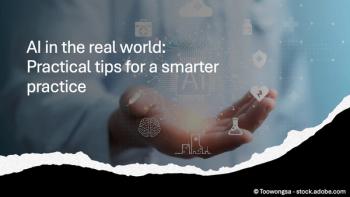
A Love-Hate Relationship with EHRs
Anyone that is responsible for patients has had "I told you so" moments. Here are mine when it comes to health IT and EHRs. I hope you take my advice.
I took a class in computer programming 47 years ago. Within the first 20 minutes, everything became crystal clear; as if I'd always known it. I've been programming and exploring/researching computer science ever since. In 1981, I turned my attention to medical records.
Not being a big fan of reinventing the wheel, I looked at what others were doing. What I saw mostly was people reinventing the wheel. Even though computer science was in its infancy, some valuable lessons had been learned and principles established that could guide developers, but they seem to have escaped the attention of the medical field.
Most projects emphasized ordering, reporting results, or providing short summaries of recent diagnoses, problems, and the like. Few were focused on what was, to me, the central issue: how to replace the paper medical record with a computerized one that could be as complete, as easy to use, and that could serve as a rich source of data for as yet unknown purposes in the way a paper record can (in other words, not a data warehouse but an information library). I choose to tackle the chart.
There were understandable reasons to avoid the chart. The input devices were not suitable for doctors and no one could afford sufficient hardware or storage to accommodate extensive narrative, especially if it contained embedded contextual metadata. The early programs tended to avoid also metadata. If any was captured it was at the developer's discretion. Every developer made a different decision, invented a different scheme erring on the side of storing less rather than more.
The typical approach to medical computing avoided the heart of the matter, the chart. By bypassing the really hard problem, developers devised simplistic architectures that have permanently impaired their ability to re-imagine the chart in computerized form. As a result most of today's so-called EHRs have the look, feel, and taste of data-gathering instruments rather than truly innovative solutions that embrace and exploit the potential of the new medium. I wanted to apply what I had learned about computer science to taking a fresh approach.
Years of thought and experimentation, combined with a conscious effort to eschew the usual and customary thinking, have enabled me to develop a body of theory and a pretty good instinct for what works, what doesn't, and, using the theory, to understand why. This experience has honed my instincts and enables me to make pretty accurate predictions about how various systems will perform.
My inborn urge to fix things that are broken led me to medicine and my desire to help others avoid learning "the hard way." This is origin of the love-hate relationship - I love of the subject and the insights that I have gained; I hate repeatedly being in a position to say "I told you so." I ordinarily avoid saying it but, just this once, I'm going to indulge myself.
Anyone that is responsible for patients has had "I told you so" moments, yet we remain hopeful that patients will take our advice, at least occasionally. I am hopeful that you will take my advice, or at least take it seriously. When the benefits of EHR are mere speculation and the risks are real, supported by evidence, to proceed as if the benefits outweigh the risks is irresponsible. There are other ways to "do something" to avoid this dilemma, but it means relying on different sources of advice.
If you're interested in some of my "I told you do" moments or want a refresher on some of the points I've made before, read on.
Medicine is unpredictably unpredictable, not 80 percent predictable with a few predictable exceptions. Implementing an EHR that limits what can be done to only what was anticipated and built into pre-defined workflows is a recipe for disaster [Han, et. al.,
Before the Affordable Care Act was enacted, I advised the administration to put their money into research rather than bribes. Instead they adopted certification thereby forcing EHRs into a mold that was already demonstrably flawed. Innovators and smaller firms are being driven out of business by the ever-changing certification requirements. Basic research is almost non-existent. This is Gresham's Law at work - the bad driving out the good. I told you so.
"Meaningful use" has nothing to do with whether or not an EHR helps physicians do their work and take better care of patients. There is
I've suggested that physicians seriously consider opting out of the incentive program. Some are finally beginning to question their decisions. "Utah's biggest healthcare provider, Intermountain Healthcare, will not even be budgeting for Stage 2 attestation in 2015 if the current 365-day reporting period isn't reduced, CIO and VP of Information Systems Marc Probst told
It's easy to take the word of an authority figure that something is beneficial, essential, etc. It's easy to go with the flow. It's hard to develop evidence and use it to make tough decisions. It's even harder to take advice that conflicts with your impulses, especially if it's contrarian. After all, how could the accepted wisdom be wrong? How? Because it's rarely wisdom. It's mostly opinion and wishful thinking. Better to let your head guide your decisions, not your hormones. Remember, I told you so.
Newsletter
Optimize your practice with the Physicians Practice newsletter, offering management pearls, leadership tips, and business strategies tailored for practice administrators and physicians of any specialty.








